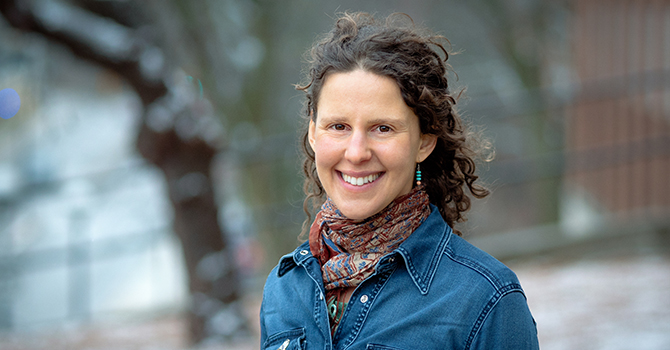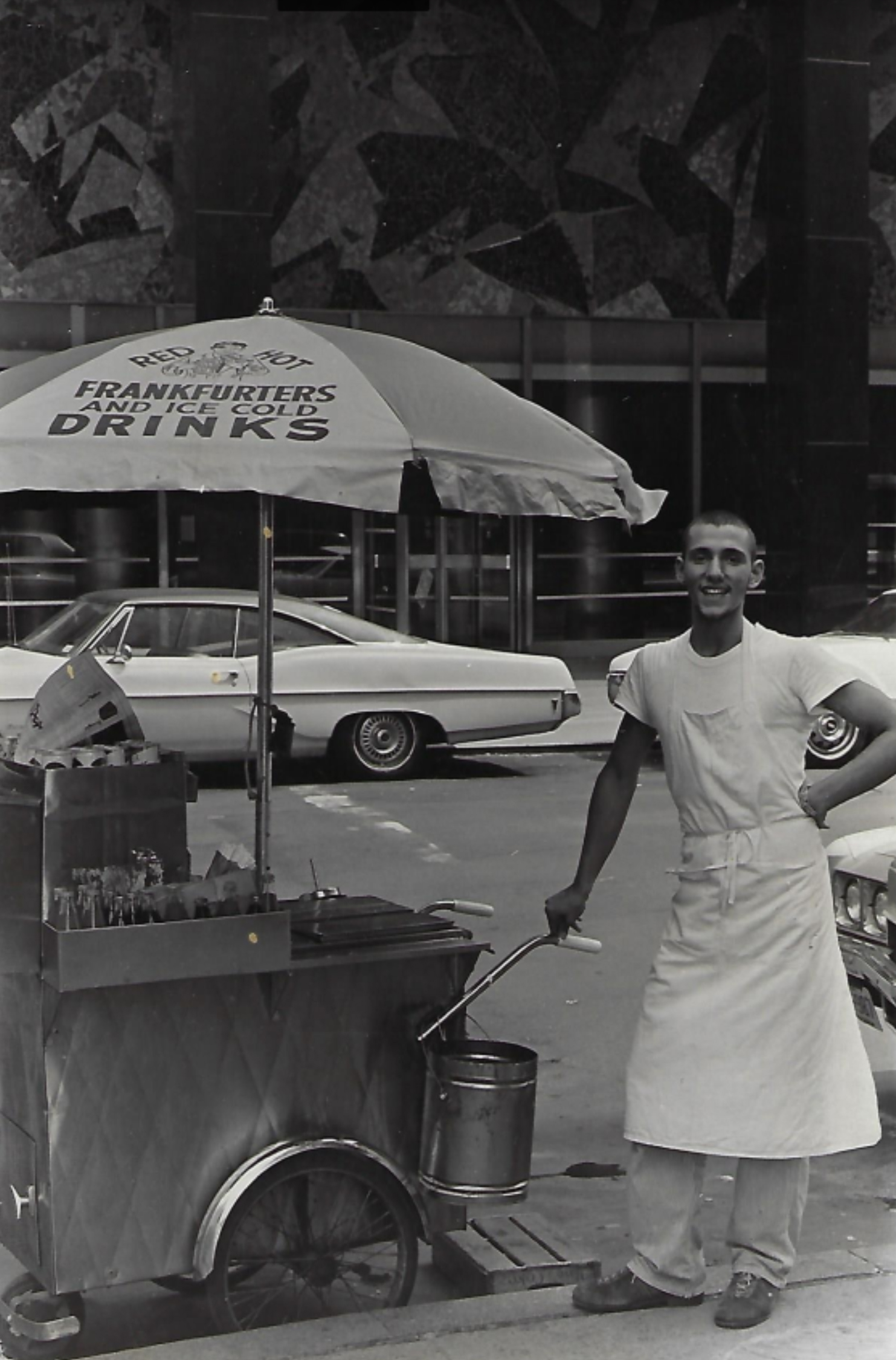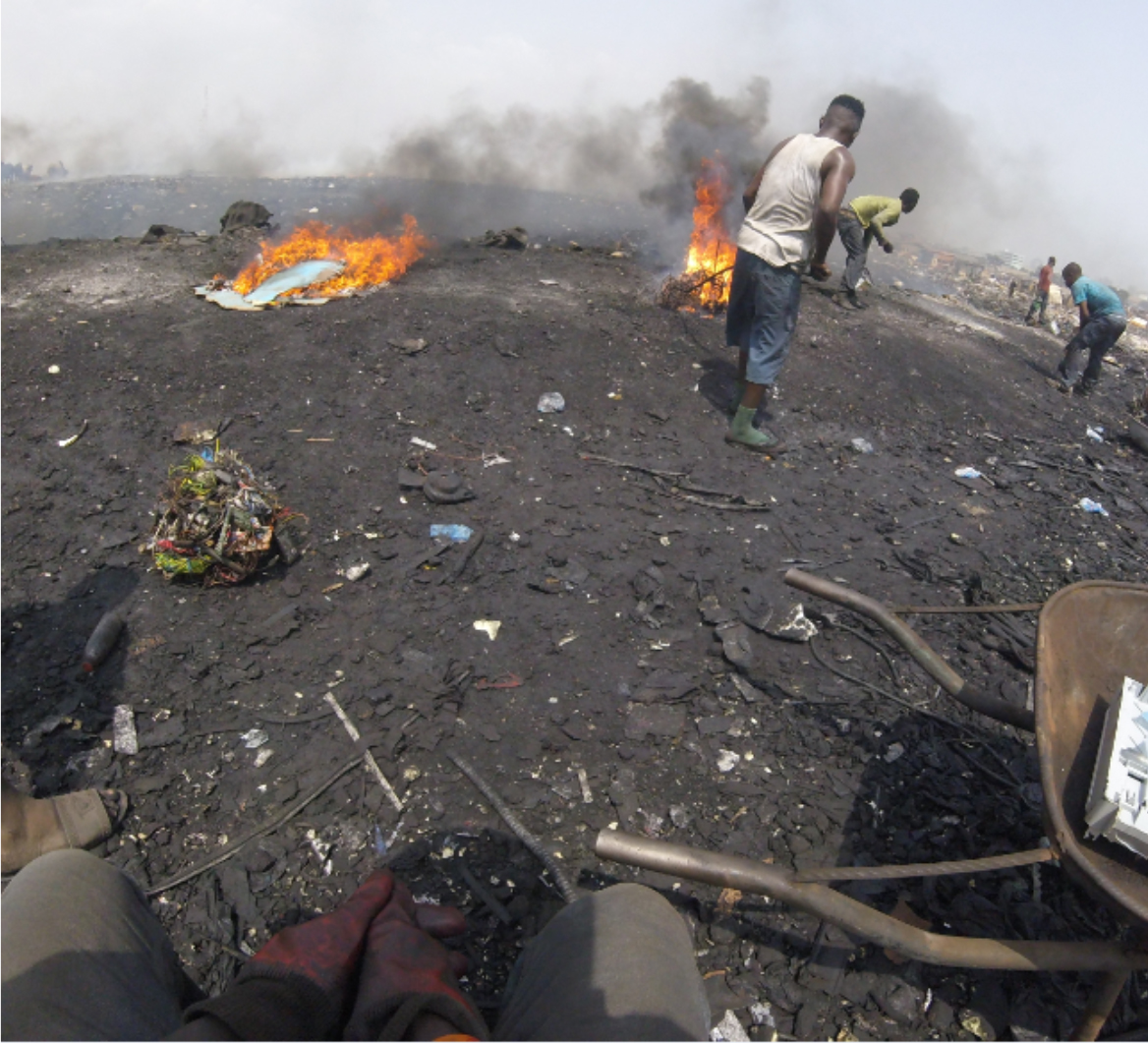Not All Labor Is for Love: Working toward Something Greater Than Ourselves

Zoey Laskaris, PhD '20
I grew up in Brooklyn, New York. My father’s family moved to New York City from a small island in Greece and worked as street vendors selling hot dogs. My mother moved from Germany as a seamstress. Having parents without a college education did not deter me from pursuing a higher degree. In fact, it taught me much of what I needed to know to succeed.
My father joined the family business and sold hot dogs at various street corners in the financial district of Manhattan until I was about 7 years old. At that point, he bought a truck to deliver meats and provisions to restaurants, supermarkets, and bodegas around the city. Growing up, my older sister and I spent Saturdays either at the hot dog stand or helping my father stock his truck, break down boxes, and procure goods from wholesale stores.
We grew up with people who worked long hours with little pay in less than glamorous conditions
 We came to know firsthand the lives of workers pushing heavy food carts, standing
behind deli counters, operating forklifts, baking knishes, organizing walk-in freezers,
and loading and unloading trucks. We grew up with people who worked long hours with
little pay in less than glamorous conditions.
We came to know firsthand the lives of workers pushing heavy food carts, standing
behind deli counters, operating forklifts, baking knishes, organizing walk-in freezers,
and loading and unloading trucks. We grew up with people who worked long hours with
little pay in less than glamorous conditions.
When I took a master’s class in occupational health and safety at the CUNY School of Public Health, I noticed that identifying hazardous conditions in a workplace came somewhat naturally to me. I began to have a deeper understanding of the connection between work and health. All the while, it frustrated me to know that it is often workers with no alternatives who are exposed to the most hazardous conditions. My passion to improve daily work conditions among those most vulnerable started to grow.
I began to have a deeper understanding of the connection between work and health.
I went on to earn an MPH in Environmental and Occupational Health Sciences at the CUNY School of Public Health studying lead exposure in workers and their communities in India and Indonesia with Dr. Jack Caravanos.
Studying Workplace Exposure
Many of the most precarious jobs around the globe occur in informal, unregulated job sectors where employees have little to no social or economic protections. We are able to discern very little about the exposures and associated health risks of these vulnerable workers. Improving methods of data collection in these settings is a necessary step to promoting health and safety.
Our ultimate goal is to improve exposure assessment so we can better prevent injury and pollution.
 In my research, we deploy personal wearable cameras with air quality monitoring devices
among electronic waste (e-waste) recovery workers at a site in Ghana. Our immediate
goals are to describe what tasks workers are performing during the day, what concentration
of particulate matter is in the air they breathe, and how different tasks affect the
respiratory health of these young workers. Our ultimate goal is to improve exposure
assessment overall so we can better prevent injury and pollution.
In my research, we deploy personal wearable cameras with air quality monitoring devices
among electronic waste (e-waste) recovery workers at a site in Ghana. Our immediate
goals are to describe what tasks workers are performing during the day, what concentration
of particulate matter is in the air they breathe, and how different tasks affect the
respiratory health of these young workers. Our ultimate goal is to improve exposure
assessment overall so we can better prevent injury and pollution.
Translating Language and Practice
At the beginning of my professional career, I had the privilege of working as a research and writing assistant to the prolific scientist and writer Barry Commoner at the research center he founded in Queens College–New York City. Dr. Commoner was a preeminent scientist and the first person to run for US President on an environmental platform. He encouraged me to take classes in public health and graciously became my most trusted mentor.
Dr. Commoner emphasized the importance of empowering individuals with knowledge to make informed decisions about their health. He worked hard to translate complex scientific information into a language that everyone could understand.
In the first year after the hurricane, we provided personal protective equipment to over 500 workers.
Together with Commoner Center director Dr. Steven Markowitz, we also translated science directly into occupational health. We established an emergency health and safety training program for day laborers in New York City following the devastation of Hurricane Sandy. In the first year after the hurricane, we collaborated with organizers serving immigrant and working-class communities to provide personal protective equipment to over 500 workers operating in hurricane-damaged homes.
Finding a Research Home at Michigan
Before coming to Michigan, I worked for four years on a National Institute for Occupational Safety and Health (NIOSH)-funded cohort study to address the risk of cardiovascular diseases from PTSD following the 9/11 World Trade Center attacks. Our recently published findings concluded that PTSD among male and female rescue and recovery workers is a risk factor for heart attack and stroke independent of recognized cardiovascular risk factors, depression and use of a respirator during the cleanup.
I applied to Michigan because of the research focuses of Dr. Marie O’Neill and others in the Epidemiology and Environmental Health Sciences departments. I accepted my invitation to enroll after being blown away by the students and upbeat spirit of the place while visiting as a prospective student. The school is home to the Center for Occupational Health and Safety Engineering (COHSE), an education and research center funded by NIOSH—so I knew at Michigan I would find both the expertise and support to foster my passion for worker health and safety.
Pursuing a career in occupational epidemiology is my way of respecting the hard work of people around the world who do what they do to put food on the table.
The school encourages all of us to be active members of the community in professional and personal ways. My opportunity to serve as a Dow Sustainability Fellow has trained me to rely on the strengths of different disciplines as we work toward improving the health of our planet. Grounded in the community at the Center for Social Epidemiology and Population Health (CSEPH)—a center dedicated to understanding how the social and economic context of our lives affects health and health inequities—I am encouraged in my own research to look beyond just the physical hazards. I am reminded of my father’s temper, my mother’s patience, and how they creatively pressed on to overcome financial barriers and raise four children.
Pursuing a career in occupational epidemiology is my own way of respecting the hard work of so many individuals around the world who do what they do to put food on the table. For many, getting through another day of work takes an enormous amount of dedication to something greater than yourself. Many changes are needed on a societal level to shift the type of work we value and how it is rewarded. It is for these changes that I am pursuing a career in public health. And it is in the labor of unprotected workers, that I find my own.
Zoey Laskaris earned a PhD from the University of Michigan School of Public Health in Epidemiology and is currently a postdoctoral research fellow at the School of Public Health.








